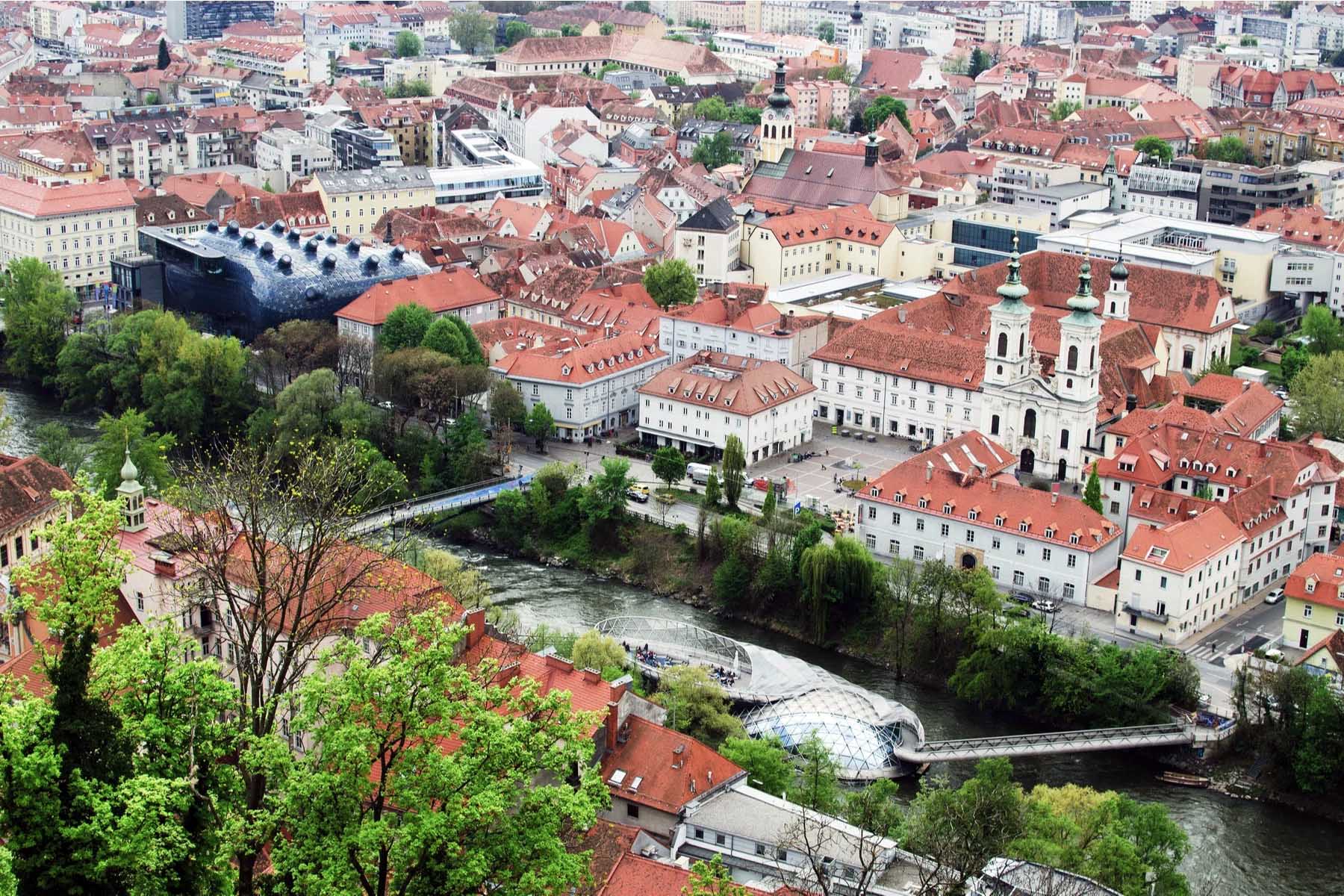One of the wonderful things about retiring in Austria is the benefits the country offers its citizens. But before you consider spending your golden years in the beautiful Alpine country, it’s a good idea to read up on social security and health insurance in Austria. Of course, researching the cost of living and the best places to retire in Austria is also wise.
And once you’ve laid the groundwork, it’s time to check out the housing options in this beautiful and bounteous land.
To help you get started, this guide provides everything you need to know about retiring in Austria, including the following information:
- Retiring in Austria
- Who can retire in Austria?
- Pensions in Austria
- The best places for expats to retire in Austria
- Services, organizations, and clubs for older expats in Austria
- Wills and inheritance in Austria
- Healthcare for pensioners in Austria
- Other support for pensioners retiring in Austria
- Useful resources
SJB Global
Let SJB Global guide you on a range of topics including saving plans, retirement and pensions transfers, investments, and more. This financial adviser provides a remote service, so you can contact their experts at a time that suits you. Get in touch with SJB Global to find out how they could help you in your life abroad.
Retiring in Austria
With its high quality of life, low crime rate, and excellent social security system, it’s hardly surprising that nearly a third of expats living in Austria consider staying there for life and spending their retirement there. All in all, for those retiring in Austria, life is pretty sweet.
Who can retire in Austria?
Currently, the pensionable age in Austria is 60 for women and 65 for men. However, you may choose an early retirement pension (or Vorzeitige Altersrente). This is essentially a continuous cash payment provided before the normal retirement age. To be granted a pension in Austria, the minimum contribution is set at 15 years.

If your monthly pension – along with other income – falls below a certain level, you can claim a compensation supplement for the difference. For instance, if your other income includes income from your spouse. This supplement will also increase if you have dependents.
If you have contributed to a pension scheme in other EU or EEA Member States, you don’t need to claim your pension separately. Essentially, you’ll just need to indicate this with your insurance provider in Austria. Typically, they will sort out the approval process between states. This applies to EU Member States and to Switzerland, Liechtenstein, Norway, and Iceland.
All online application forms for the different pensions in Austria are available on the European Commission website.
EU/EFTA nationals in Austria
In the EU, employees only pay social security contributions in one country. Therefore, the employee’s place of work and their country of residence will decide which country’s system applies to them.
Non-EU/EFTA nationals in Austria
For non-EU nationals, there are several countries that Austria has social security agreements with. However, some of these, such as Canada and the United States, only cover pension insurance. Others, like Serbia and Bosnia, have comprehensive social security agreements in place. Again, these agreements are linked to employment within Austria.
Retirement age in Austria
In Austria, retirement benefits begin at 60 for women and 65 for men. That said, the next decade will gradually even out the standard retirement age for both sexes. Early retirement is common for people who have accrued many contributory years. However, this does mean a financial penalty in the overall pension. On the other hand, people who work past the standard retirement age receive a bonus.
Pensions in Austria
Austria offers two types of pensions – contributory and non-contributory. Employers subtract 10.25% of the gross income as the employee’s contribution. Then, they add 12.55% as the employer’s contribution. There are also government contributions for certain people; for instance, those with care obligations for relatives with specific care needs, and those in military service.

As previously mentioned, the retirement age in Austria is 65 years for men and 60 years for women. However, there are plans over the next decade for the standard retirement age for women to rise to the same level as men.
And while early retirement is possible for people who have accrued many contributory years, it does mean a financial penalty in the overall pension. Conversely, people who work beyond the standard retirement age receive a bonus. You must contribute for a minimum of 15 years to qualify for a pension. In preparation for your retirement, you may find our guide to the Austrian pension system useful.
Transferring an international pension to Austria
If you are moving to Austria from another EU country or the UK, your existing state pension can be paid directly into your new Austrian bank account.
Qualifying Recognized Overseas Pension Scheme (QROPS) is an overseas pension scheme that allows you to transfer your UK pension rights. Importantly, it enables you to leave your remaining fund to your heirs without any deduction of UK tax upon death.
However, QROPS also provides the option of where to invest your pension fund. Generally, the jurisdiction of choice for Austrian residents is Malta. Essentially, this is due to its highly-regulated, sophisticated tax system, and the fact that it is an integral EU member.
For non-EU countries, there are several countries that Austria has social security agreements with. For example, Canada and the United States, have specific pension insurance agreements. Our global Portable retirement planning guide may be of use for your research here.
Taxes on retiring in Austria
Today, the Austrian state pension system encompasses the entire working population. The system also provides for the Ausgleichszulage. This is a taxpayer-funded, means-tested minimum income for pensioners. Means-tested social welfare benefits are provided to people with insufficient income and no pension entitlement.
Tax in Austria is a pay-as-you-go system. This means that tax brackets are defined by how much is earned in a year before special circumstances are applied. The pension fund is not subject to tax on investment income earned on employer or employee contributions. Therefore, investment income is tax-exempt.
The best places for expats to retire in Austria
Fortunately for expats looking to retire in Austria, the country boasts numerous beautiful cities and towns, each with their own distinct characteristics. Typically, living costs are higher in the cities, particularly in Vienna and Innsbruck. That said, they are still 10-30% less than in the major cities in neighboring France and Germany. Below are some of the most popular retirement destinations.
Vienna
Likely the first place you think of in Austria, the capital city is a cultural and architectural hub.

Although the cost of living is pricier than smaller cities in the country, it is still cheaper than many other large cities in Europe.
Salzburg
The architecture alone is reason enough to live in Salzburg. The city offers a plethora of cultural activities and is most famous for being the birthplace of Mozart.
Generally, Salzburg sits among the most expensive cities in Austria due to its generous combination of natural and man-made wonders.
Innsbruck
Located high in the Alps, Innsbruck is rich in natural beauty. The historic city is the fifth-largest in Austria and famous for snow sports and scenery.
But despite its popularity, it maintains a small-town feel. It’s also right up there with Vienna among the priciest cities to live in Austria.
Linz
Linz is the third-largest city in Austria and the cultural center of the Upper Austrian province. Home to the River Danube, it is a popular leisure area with a good tram and bus system.
Generally, it is less expensive than Vienna and Salzburg.
Graz
Filled with beautiful landscapes, cultural heritage, and fun nightlife, Graz is popular among all generations. It is located right in front of the Alpine area and is one of the most affordable cities in Austria. It is also a UNESCO World Heritage city.

You can find a full list of senior citizens and care facilities in Austria on Wohnen im Alter.
Services, organizations, and clubs for older expats in Austria
If you are a senior living in Vienna and looking to join some social clubs, a great place to start is the Pensionistenklubs. These senior citizen centers are found all over the city and offer plenty of socializing and entertainment opportunities. Activities include card and board games, dance events, lectures, and qi gong (much like tai chi). Most operate every afternoon during the week. Typically, there are no registration or membership fees.
The AWA of Vienna is an international women’s group that organizes monthly English-speaking activities. There is an annual bazaar as well as regular meetups and country walks and educational activities like music appreciation. The annual dues of €94 are half price for seniors (over 60).
The Rotary Club of Austria is another great option. This worldwide organization fosters friendships through weekly meetings. A uniting principle of the Rotarian world is membership independent of gender, occupation, culture, and religion.
Wills and inheritance in Austria
There is currently no inheritance or gift tax as such in Austria. However, there is a transfer tax of 3.5% (2% for close relatives). This is applied in the case of property transfer to a successor. The inheritance of property gets the same treatment as any other property transaction. They will be assessed with a property transfer tax. Gifts of cash, shares, and such must be declared to the tax authorities if they exceed €50,000 in the case of relatives; or €15,000 in the case of third parties.

In actuality, there aren’t many restrictions as to how an owner transfers his or her property in Austria. However, the Austrian Civil Code includes protection for mandatory heirs to stop a person from donating all of his or her estate to other people. Under Austrian law, mandatory heirs are entitled to a ‘reserved portion’ of the estate. Outside the reserved portion, there are no restrictions as to who can inherit.
In the absence of a will, the entire estate goes to the mandatory heirs. The order of precedence for succession has the children (or the grandchildren, respectively) inheriting two-thirds and the spouse one-third of the estate. If there are no descendants, the spouse will inherit two-thirds and the parents will inherit one-third. If there are no relatives either, the estate goes back to Austria.
In Austria, it is common to make a will. It is also possible for foreigners to make a local will. You can make either a private will, judicial will, or notarial will. However, it is not possible to write a will by proxy.
Healthcare for pensioners in Austria
Fortunately, healthcare is accessible to everyone living in Austria. In essence, healthcare is universal for all residents, regardless of age or income. The nation’s excellent healthcare system is both affordable and easily accessible.
Public health insurance in Austria covers pretty much everyone and is deducted directly from wages. Specifically, it is free of charge for people who make under a certain income, or who are disabled, studying, or retired.
If you are employed, your employer will automatically sign you up for healthcare insurance. If you are a pensioner and therefore not employed, you must first register as a resident in Austria. You will then need to take out voluntary insurance. You can also add your dependents to your insurance plan.

Once you have registered you will be given a European Health Insurance Card (E-card). You will need to take this every time you visit a doctor. Notably, the E-card is available to all residents of the EU. Furthermore, it allows you to access state-provided healthcare in any of the 27 EU countries.
As well as doctors, the E-card also gives you access to online services. You should look for a doctor’s surgery that says Kassenarzt (contracted doctor) or Alle Kassen (all insurers). You won’t have to pay to see these doctors, however, you will have to pay to see a private doctor. The cost should be 20% with your insurer reimbursing the rest.
Private healthcare in Austria
Private healthcare is available in Austria for those who would rather not use public healthcare. Typically, this means zero waiting times, a larger choice of physicians, clinics, and hospitals. Most individuals who take out private health insurance use it to supplement their public insurance. You can find more detailed information in our guides to the healthcare system in Austria and getting health insurance in Austria.
Other support for pensioners retiring in Austria
Austria as a whole is very senior-friendly and provides generous discounts to pensioners. For instance, the senior travel discount, ÖBB Vorteilscard Senior, allows anyone above the age of 64 to travel on Austrian trains. This will rise to 65 as of 2022. Remarkably, the card enables seniors to travel for a little as €29 per year. Furthermore, you only need to bring along identification to prove your eligibility.

Most bus companies and other forms of transport in Austria also offer pensioner discounts on travel. Furthermore, many attractions offer substantial discounts. You will even find that some hotels offer discounts for senior citizens. Therefore, it’s always worth mentioning when you book anything in Austria.
Useful resources
- Social security rights in Austria – European Commission guide on social security rights in Austria
- WKO – the professional association of pension funds in Austria
- Living in Austria – a UK government website for expats wishing to retire in Austria
- Devere Austria – information on retirement planning in Austria




